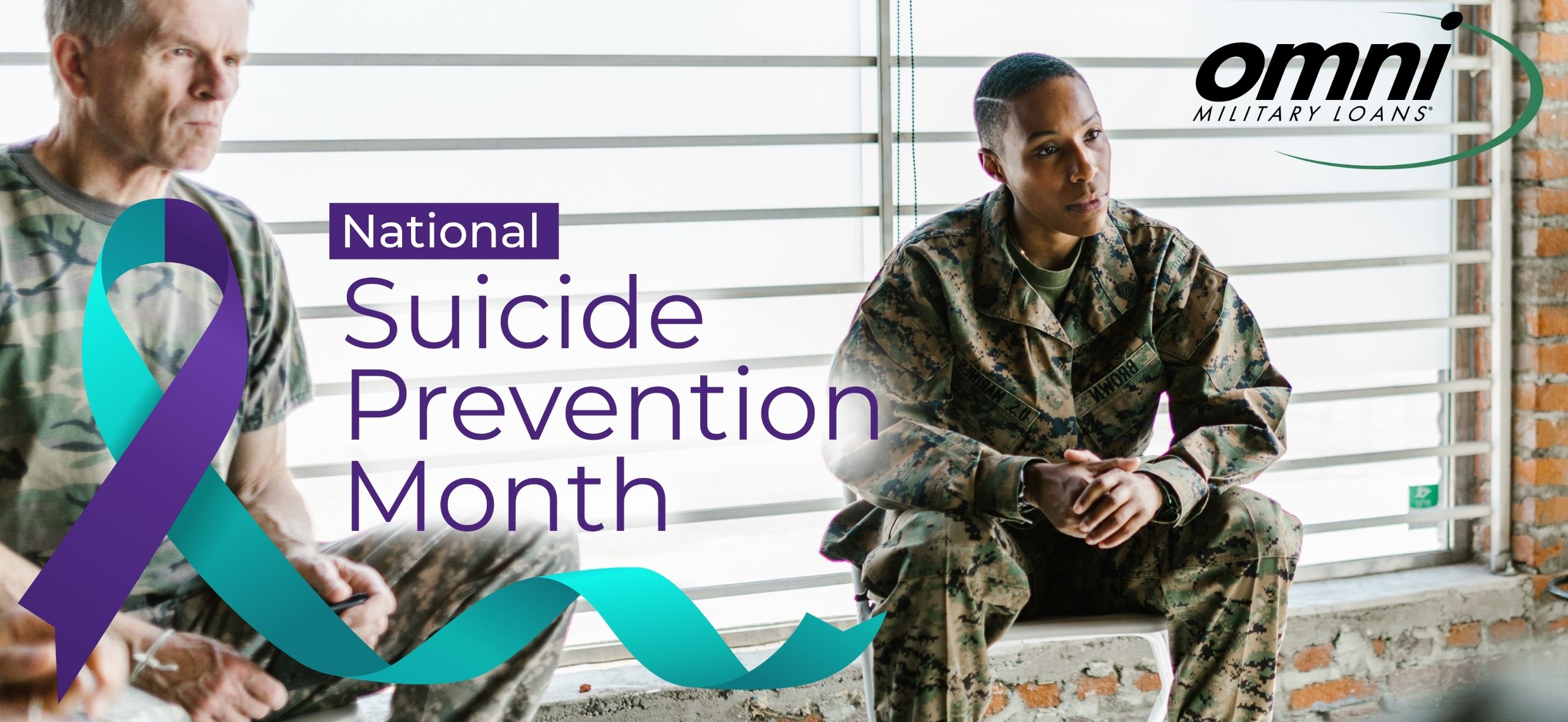Standing Together: Raising Awareness for Suicide Prevention Month
Military service profoundly shapes individuals in unique and meaningful ways. It calls for discipline, resilience, and dedication—and those who serve often carry experiences that may not be visible long after their time in uniform. One of the most serious challenges facing our military community today is suicide.
While this issue impacts people from all walks of life, veterans experience higher rates compared to their civilian counterparts. According to the U.S. Department of Veterans Affairs, the veteran suicide rate remains significantly higher than that of the general population. Gaining a deeper understanding of these challenges, reducing stigma, and knowing where to find support is an essential step toward healing and hope.
The Facts:
- Higher Risk: Veterans are at a higher risk of suicide compared to their civilian peers.
- Complex Causes: Contributing factors include PTSD, combat exposure, transition stress, financial strain, loss, and relationship pressures.
- Financial Stress Matters: Money struggles often compound mental health challenges.
“Financial stress is too often a main contributing factor in suicide, and it’s a burden many service members and their families silently carry. At STEP, we provide financial coaching and education that help families build stability and resilience. This creates hope and connects them to the resources and community that save lives.” — Chelsea Fenner, Development Coordinator, STEP
The Army’s 2025 Suicide Prevention Month theme, “We Are Stronger Together. Connect to Protect,” underscores the power of connection and support. Building strong, positive relationships helps foster belonging, encourages healthy coping, and strengthens the safety net around those who may be struggling.
How We Can Help Each Other
Service members and veterans have shown immense courage in defense of our nation. No one who has or is serving should face these struggles alone. Just as no mission is carried out without a team, suicide prevention requires collective action.
Here is how we can all play a role:
- Recognize the signs of crisis: withdrawal, hopelessness, or uncharacteristic behavior.
- Offer Support: a simple conversation can open the door to lifesaving resources.
- Connect to resources: linking someone to professional help can make all the difference.
Finding Support and Resources
If you or someone you love is struggling, please know that you are not alone. Reaching out for help is not a sign of weakness—it is an act of strength.
Immediate Crisis Support
- Veterans Crisis Line: 988, then press 1; text 838255
- VA Suicide Prevention
Prevention & Programs
- Stop Soldier Suicide
- Military OneSource
- Face The Fight
Peer Support Networks
- Team Red, White & Blue (RWB)
- Wounded Warrior Project
- Local Veteran Service Organizations
Our Commitment
At our core, we believe financial readiness is part of total readiness. By providing financial education and resources, we aim to reduce one of the silent burdens many military families face – helping create stability, confidence, and resilience. Together, we can build stronger foundations for both financial and mental wellness.
Final Note
This article is intended for educational purposes only and is not a substitute for professional medical advice. If you or someone you know is in crisis, please reach out to the Veterans Crisis Line by dialing 988 and pressing 1. Help is available – 24/7, confidential, and free.



